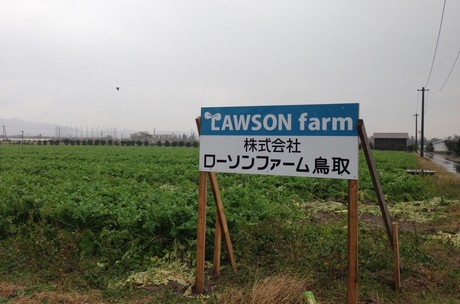 i Niinami, who heads an agricultural reform committee advising Prime Minister Shinzo Abe and is the chief executive officer of Lawson, the nation’s second-largest operator, started 12 farming joint ventures since 2010 and plans 28 more.
i Niinami, who heads an agricultural reform committee advising Prime Minister Shinzo Abe and is the chief executive officer of Lawson, the nation’s second-largest operator, started 12 farming joint ventures since 2010 and plans 28 more.For Lawson, Seven & I’s 7-Eleven outlets and Itochu Corp.’s partly owned FamilyMart Co., a growing appetite for fresh fruit and vegetables means more frequent customer visits. Lawson estimates shoppers who drop in to buy perishable items visit its stores about twice as often as others and spend 20 percent more.
Their challenge is to satisfy this demand in a country where agricultural land shrank 36 percent over the past five decades. The typical farmer in Japan today is a man in his mid 60s whose heirs have abandoned rural industry.
The number of farming corporations rose by 1,732 to 13,561 in the three years after rules were relaxed in December 2009 allowing companies to take stakes of almost 50 percent in agricultural ventures, from less than 10 percent previously, the latest government data show. At the last count in 2010, companies held stakes in 7 percent of farmland in Japan, according to the agriculture ministry.
Perishables including fruit, vegetables, bread and pastries accounted for more than 14 percent of total sales for Lawson in the 12 months through February 2013. The gross profit margin for perishables was more than 34 percent, according to the company’s annual report.
Toru Wakui, who manages a farming and food processing company that employs 130 people on the northern tip of Japan’s main island, said change is needed because a generation of growers is nearing retirement without enough successors. “We need a new model that will replace family farming,” said Wakui, 66. “To create a new model, we need new blood.”





